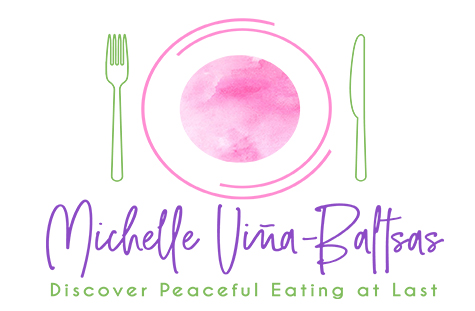I don't know about you, but I've been seeing a lot more TV commercials for diabetes drugs like Ozempic, Jardiance, and Metformin than ever before.
While many require these potentially life-saving medications to help manage their blood sugar, others are being prescribed these for weight loss or to 'cure' ob*sity (* used on purpose because using BMI terms is stigmatizing).
In light of this trend, I wanted to educate myself further, so I took a few masterclasses with a well-known fat activist and podcaster Dr. Asher Larmie (they/them) (@thefatdoctor). I was curious to know more about the current research, especially in terms of safety and long-term efficacy. I also wanted to know if others experienced what I had when I was taking one of these medications years ago.
Shortly before I discovered intuitive eating, I was prescribed a now-common medication to help boost the effectiveness of another medication I was taking. I wasn't told a possible side effect was weight loss. Like most of these other meds being prescribed, this medicine was created to help another condition, but they inadvertently realized that it also caused weight loss in most folks.
Approximately one month later, I started to feel the medicinal effects. I was elated. I also noticed that I was losing weight effortlessly. Around the same time, I started a vegetarian diet, so I assumed the weight loss was from that.
I dropped about 3-4 pants sizes within a few months.
This was before I knew about diet culture, weight science, and set point weight, so I thought my 'new' body was my 'real' body. As a chronic dieter, this wasn't the first time I'd felt this way, but this time I felt different for some reason.
A few years later I didn't need the medication anymore, so I stopped taking it.
Within a few months, I gained every pound back plus more. Big surprise, right? Not really! Even though I wasn't dieting when I was on the medication per se, my body responded as if I had been. I learned that the medication had temporarily changed my metabolism affecting my appetite and causing me to eat less. Dr. Larmie confirmed that this is exactly what happens with all the popular medications that they're now pushing in the media.
In an effort to regain 'control' of my body and cope with the shame associated with the rapid weight gain, I quickly slipped back into my disordered eating behaviors again.
Just like all the other times I had yo-yo dieted, I wondered what I had done wrong and desperately wanted to find a solution.
Of course, now I know that I'd done nothing wrong, but at that time, it was all-consuming. To this day, I occasionally wonder what physical damage I've done to my body from all the yo-yo dieting I've done. Do you ever wonder about that?
I understand for many, it is tempting to want to be in a smaller body. After all, our culture elevates smaller bodies, so feeling this way is natural. Weight stigma exists and for most, it's not easy to live in a larger/fat body. I acknowledge that many fear their weight may lead to a long-term illness or cause mobility issues, etc. especially as they advance in age.
What we need to always remember is that while weight loss may help reduce these health concerns, it's not a permanent solution and often backfires potentially leaving behind emotional, physical, and mental side effects. This is true with traditional dieting/restricting and also with the use of medications and/or injectables for weight loss purposes.
If you have considered taking medications and/or injectables to lose weight (and are not taking them to treat a diagnosed medical condition like diabetes or pre-diabetes), please do your research to understand how weight stigma is influencing many of these recommendations in the medical field. The research is grim and so are the potential physical and emotional side effects.
While we all have full body autonomy, I'm sharing my story so you can see the other side of this all the media hype.
The truth is, we cannot escape the emotional work that is needed to accept our bodies. I've had clients who have used Wegovy and become more obsessed than ever with their bodies. Plus, they feared their insurance would stop covering the prohibitively expensive medication so they were stressed all the time.
Know that there are tried and true frameworks and methods that I teach to help make the body acceptance process easier and more pleasurable. My clients have shared their experiences so others can see what's possible for them.
Have you been tempted to ask your doctor about any of these medications?
Ready to fast-track your recovery? Tap the Let’s Connect button below to schedule your free 20-minute connection call.
You don't have to do this alone.







